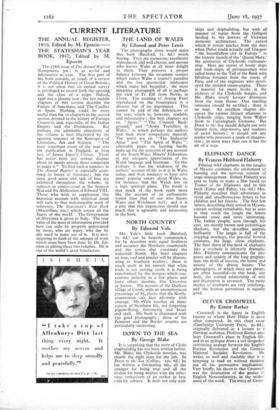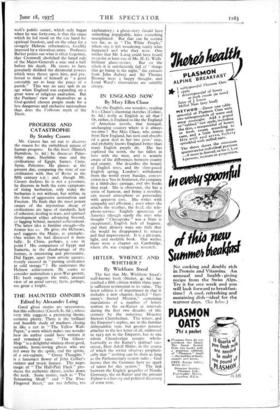Cromwell is the figure in English history to whom Herr
Hitler is most often compared. In this short essay (Cambridge University Press,' 3s: 6d:), originally delivered as a lecture • to a German audience, Professor Barker ana- lyses Cromwell's place in English life, and in an epilogue draws a not altogether convincing analogy between the Engligh Puritan Revolution and the German National Socialist Revolution. He writes so well and readably that it is tempting to read on without thinking out all his provocative • implications. Very briefly, his thesis is that Cromwell was the incarnation of the. genius of English Nonconformity, in: the widest sense of -the word.. The itony. of. Groin- well's public career, which only began when he was forty-one, is that the cause which he led stood on the one hand for spiritual freedom, and on the other for a savagely Hebraic reformation, forcibly imposed by a victorious army. Professor Barker points out what is often forgotten, that Cromwell abolished the hated rule of the Major-Generals a year and a half before his death. He seems to have genuinely disliked the dictatorial powers which 'were thrust upon him, and pre- ferred to think of himself as " a good constable set to keep the peace of a parish." This was no easy task in an age when England was expanding on a great wave of religious exaltation. But the Puritans' view of themselves as a God-guided chosen people made for a less dangerous and exclusive nationalism than does the Volkstum myth of the Nazis.















































 Previous page
Previous page